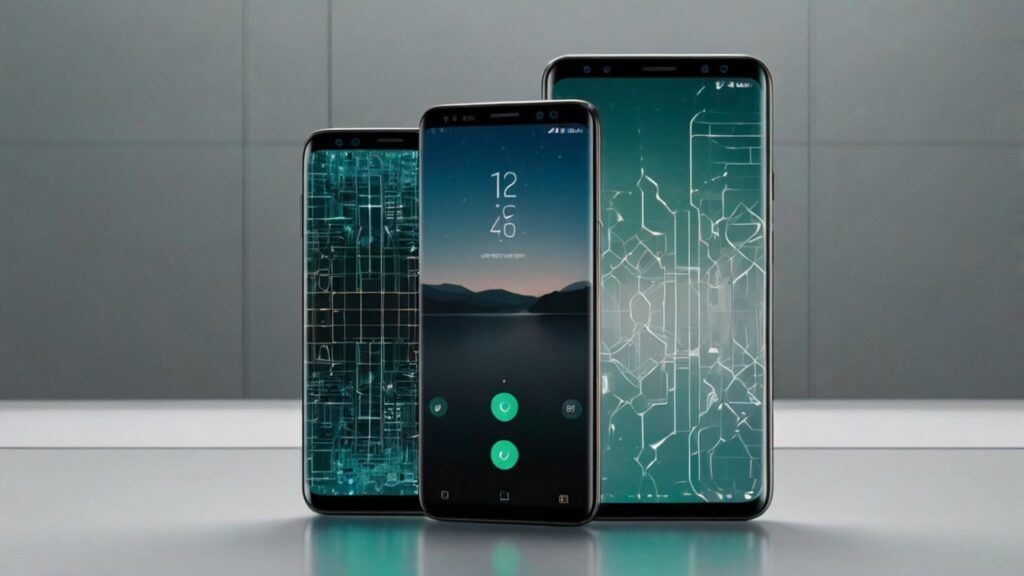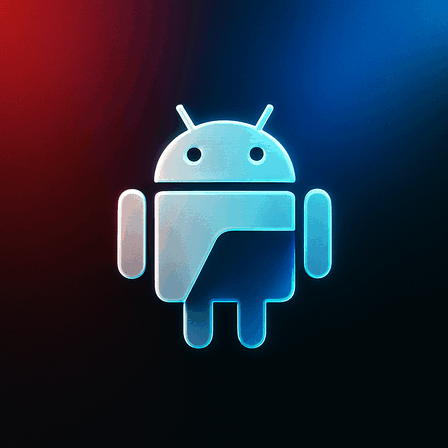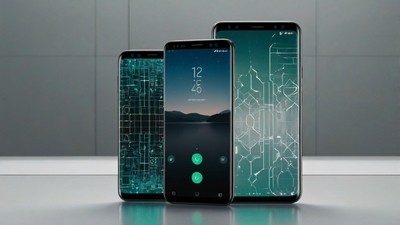
Samsung Galaxy Vs. Google Pixel: Which Is Right For You? A Comprehensive 2025 Guide
Choosing a new smartphone is a significant decision, especially in the rapidly evolving Android ecosystem. For years, the rivalry between Samsung Galaxy and Google Pixel has captivated users, each brand offering a distinct philosophy and set of features. As of 2025, both lineups boast incredible advancements, particularly in AI capabilities, camera technology, and overall performance. But which one truly fits your lifestyle and needs? This in-depth guide will dissect the key differences, helping you make an informed choice.
The Landscape of Android Flagships in 2025
Samsung, a titan in the smartphone industry, continues its tradition of offering a wide range of devices, from budget-friendly options to ultra-premium flagships like the Galaxy S25 Ultra and the innovative Z Fold series (samsung.com). Their devices are known for cutting-edge hardware, vibrant displays, and extensive customization through One UI. Google, on the other hand, focuses on a streamlined Android experience, prioritizing software integration, exceptional computational photography, and now, its powerful Tensor G5 chip with integrated AI features (store.google.com).
Design and Build Quality: A Matter of Aesthetics and Durability
Both Samsung and Google have refined their designs over the years, offering premium materials and robust builds. However, their aesthetic approaches differ significantly.
Samsung Galaxy’s Sleek Sophistication: Samsung often opts for a sleeker, more unified design. For instance, the Galaxy S25 features cameras directly on the back with circular protrusions for the lenses, presenting a seamless look (pcmag.com). The Galaxy S25 is also remarkably compact and lightweight, weighing only 162 grams, making it one of the lightest major flagships in the market (androidcentral.com). Samsung’s emphasis on durable materials and sophisticated finishes gives its phones a distinct premium feel. Their displays are renowned for their vividness and brightness, often utilizing Dynamic AMOLED 2X technology with high refresh rates (iprice.ph).
Google Pixel’s Distinctive Identity: Google Pixel phones, conversely, are recognizable by their signature horizontal camera bar that spans the width of the device (pcmag.com). While this design choice can prevent the phone from sitting flush on a flat surface, it undeniably offers a futuristic and unique appearance (mashable.com). The Pixel 9, for example, is slightly larger and heavier than the Galaxy S25, weighing 198 grams with a 6.3-inch display compared to the S25’s 6.2-inch display (androidcentral.com). Google also offers unique color options that some users find particularly appealing (techradar.com).
Ultimately, design preference is subjective. If you prefer a more minimalist and traditional aesthetic with a lighter build, Samsung might appeal more. If a distinctive, perhaps more “futuristic” look with a focus on camera integration is your priority, the Pixel could be your choice.
Camera Capabilities: The Ultimate Showdown
Both brands are lauded for their photographic prowess, but they achieve stunning results through different means. Google leans heavily on computational photography and AI, while Samsung combines powerful hardware with advanced software.
Google Pixel: AI-Powered Photography: The Google Pixel has long been celebrated for its camera, often described as having “vastly superior cameras” compared to Samsung by some users (reddit.com). The Pixel’s strength lies in its AI-driven software, which optimizes every shot. The Pixel 9 features a 50MP main sensor and a 48MP ultra-wide lens, delivering excellent detail and dynamic range (techradar.com)]. The Pixel 9’s main camera photo quality has been noted as superior in various scenarios, with a noticeably brighter display for outdoor viewing (gsmarena.com). Pixel phones also excel in video stabilization and AI editing tricks like Magic Eraser and Best Take (youtube.com). The Pixel 10 Pro boasts a 50MP main, 48MP 5x telephoto, 48MP ultrawide, and a 42MP selfie camera, with Google often enhancing colors for a more vibrant, “poppy” look (mashable.com).
Samsung Galaxy: Hardware Powerhouse with AI Integration: Samsung’s approach involves throwing powerful hardware into the mix, particularly with its Ultra models. The Galaxy S25 Ultra, for instance, features a colossal 200MP main lens, a 10MP 3x telephoto, a 50MP 5x telephoto, and a 50MP ultrawide lens (mashable.com). This allows for incredible detail and versatility. Samsung’s cameras are praised for capturing scenes with clarity in both foreground and background, and for color realism (mashable.com). The Galaxy S25 series integrates advanced AI to enhance imaging, setting a new standard for smartphone photography (samsung.com).
Both brands offer sophisticated photo editing and image generation software. Google’s suite is often considered more comprehensive, featuring generative editing that allows users to move or add objects within photos (mashable.com).
Performance and Software Experience: Smoothness vs. Customization
Under the hood, both Samsung and Google phones are powerhouses, but their software philosophies lead to vastly different user experiences.
Google Pixel: Pure Android and Seamless AI: Pixel phones are known for delivering a “clean software” and “stock Android vibe” (youtube.com). This means a bloatware-free experience with timely updates directly from Google. The Tensor G5 chip ensures “top-tier performance, smooth multitasking, and AI-powered features” across the Pixel 10 lineup (t-mobile.com). Pixel’s AI features are often more deeply integrated and perceived as more useful, including advanced call screening (auto-hold), note-taking, and reminder setting with Gemini AI (blog.google).
Samsung Galaxy: Feature-Rich One UI and Ecosystem: Samsung’s One UI offers a highly customizable Android experience, packed with additional features that often go beyond stock Android. Users appreciate the extensive options for customizing the lock screen, and tools like Good Lock provide unparalleled personalization (androidauthority.com). The Galaxy S25 features the “most powerful processor for Galaxy,” the Snapdragon 8 Elite for Galaxy, ensuring fast and efficient performance (samsung.com). Samsung also boasts a rich ecosystem with features like Smart Switch for easy data transfer, advanced video call effects, and the Bixby intelligent assistant (samsung.com). The “expansive Galaxy AI suite” offers unique features not found on Pixel devices (androidcentral.com).
For those who value a pure, uncluttered Android experience with cutting-edge AI features, the Pixel is ideal. If extensive customization, a feature-rich interface, and a broader ecosystem of interconnected devices are more important, Samsung is a strong contender.
Battery Life: Powering Your Day
Battery life is a critical factor for any smartphone user. Both Samsung and Google have made strides in optimizing power consumption.
Google Pixel’s Solid Endurance: The Pixel 9 has “better battery life” than the Galaxy S24, making it a strong performer in endurance tests (gsmarena.com). The Pixel 10 Pro XL also showed a “slightly superior” battery life compared to the Galaxy S25 Ultra in some tests (youtube.com). Google’s optimization of its Tensor chips and software contribute to its impressive longevity.
Samsung Galaxy’s Varied Offerings: Samsung offers a wide range of battery capacities across its lineup. For instance, the Galaxy S25 boasts a 4000mAh battery, providing up to 29 hours of video playback, while the S25+ features 4900mAh for up to 30 hours (samsung.com). Samsung is also known for offering phones with 5000 mAh batteries, catering to users who prioritize maximum endurance (reddit.com).
While specific battery performance can vary between models and usage patterns, both brands offer competitive battery life. For extreme longevity, some of Samsung’s larger battery models might have an edge, but Pixel phones consistently perform well for active use.
Pricing and Value: What You Get for Your Money
Both brands offer devices across various price points, though their flagship models are premium.
Samsung’s Broad Portfolio: Samsung provides options from budget-friendly A-series phones, like the Galaxy A16 5G under $200, to high-end flagships exceeding ₱120,000 (approximately $2,000) for the latest models (androidauthority.com) (samsung.com). This extensive range means there’s a Samsung phone for almost every budget and need.
Google Pixel’s Focused Lineup: Google’s Pixel lineup, while smaller, is focused on delivering a premium experience at competitive prices. The Pixel 10 is considered “the best Android phone for most people” by some reviewers (nytimes.com). Google also offers deals and promotions, especially for older generations, making Pixel phones an attractive value proposition. You can find and compare various Pixel models and their prices directly on the Google Store (store.google.com).
When considering value, it’s important to weigh not just the upfront cost but also the features, software support, and ecosystem benefits. Both brands offer excellent choices, but Samsung’s sheer variety can cater to more specific budget constraints.
The Verdict: Which is Right for YOU?
The choice between a Samsung Galaxy and a Google Pixel phone in 2025 boils down to your personal priorities:
-
Choose Google Pixel if:
- You prioritize an exceptionally smart camera driven by AI, with features like Magic Eraser and Best Take.
- You prefer a clean, stock Android experience with timely updates and minimal bloatware.
- You value deep AI integration for tasks, calls, and overall device intelligence.
- You appreciate a distinctive design aesthetic.
- You desire strong battery performance and a focus on software optimization.
-
Choose Samsung Galaxy if:
- You crave cutting-edge hardware, vibrant customizable displays, and a wide range of form factors (including foldables).
- You desire extensive customization options through One UI and tools like Good Lock.
- You need a phone with potentially larger battery capacities or ultra-high megapixel cameras for maximum detail.
- You are already invested in the Samsung ecosystem (watches, tablets, etc.) and want seamless integration.
- You seek a device that offers the “best of both worlds” with a balance of powerful hardware and advanced AI features (androidcentral.com).
Ultimately, both the Samsung Galaxy and Google Pixel series offer outstanding Android experiences in 2025. Your ideal choice will reflect your individual needs and preferences.
Shop Now: Ready to explore the latest models?
- Discover the full range of Samsung Galaxy smartphones: Shop Samsung Galaxy on Amazon
- Experience the innovation of Google Pixel: Shop Google Pixel on Amazon
Are you looking to build your own online business and earn commissions through affiliate marketing, just like this blog post aims to do? A platform like Wealthy Affiliate can provide comprehensive training, tools, and community support to help you get started on your journey to online success. Explore the possibilities and learn how to turn your passions into profit by visiting Wealthy Affiliate here.

